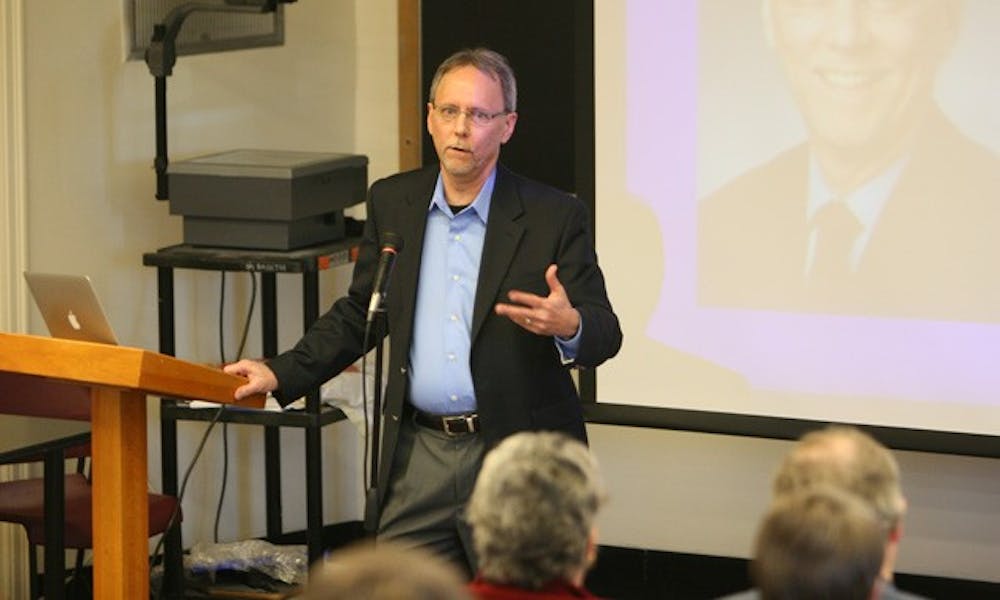This year’s Winter Forum—“Pandemic 2011”—attracted in some ways a more diverse crowd than the previous year, Arts and Sciences Council members learned at their meeting Thursday.
Steve Nowicki, dean and vice provost of undergraduate education, said that although the forum was an overall success, he is concerned that one segment of Duke’s population is avoiding the event.
“White men seem to have been less interested,” he said. “I’m worried that there’s a demographic that’s opting out of this.”
Nowicki said there were more women, minority students and students on financial aid at this year’s forum compared to last year’s program. According to numbers compiled by Nowicki, of the participants in the 2010 Winter Forum, “Making the Green Economy Work,” men and women were equally represented. In the 2011 Winter Forum, however, 71.4 percent of the participants were women.
Last February, Nowicki told the council that there were not enough minority students and Division I athletes at the 2010 forum. Thursday, he told the council that Pandemic 2011 had much higher minority and student athlete representation. No athletes attended the 2010 forum, and in 2011 8.6 percent of the participants were varsity athletes.
After showing the council a series of photos and videos of Pandemic 2011, Nowicki discussed the 2012 Winter Forum. It will focus on refugees and displaced persons and will be sponsored by the Kenan Institute for Ethics, he said. He also called on faculty to submit potential topics for future forums.
“We’re looking for a broad mix of topics with global significance,” he said. “This gets students not just listening in a talking-heads fashion but gets them working on a real problem.”
In other business:
Alvin Crumbliss, interim dean of the faculty of Arts and Sciences, commented on the results of a recent poll that asked for faculty opinion on cutting spending and increasing revenue. Faculty responses showed general opposition to reductions in both faculty and staff funding.
Crumbliss’ staff is working on reducing spending by encouraging professors to retire, restricting new hires, limiting research funding and lowering energy use, he said.
“What we’re trying to do is plan for the future,” Crumbliss said.
Council Chair Ruth Day expressed concern that although Crumbliss said faculty used only 50 percent of the allocated research expenditure funding, she had heard that many faculty were denied grant requests.
“In the past few years, we’ve increased the number of individual faculty research accounts,” he responded. “I’m very supportive of faculty research—we need faculty research.”
David Bell, senior associate dean of the graduate school, spoke to the council about their departmental responsibilities as the University reevaluates how to assess student learning. Bell noted that each department is required to submit a report on its assessment plans to the University.
Dr. Margaret Humphreys, professor of history and associate clinical professor of medicine, asked how a universal effort was possible when each department has different assessment and curriculum processes.
“We don’t think we can impose one model on everyone,” Bell said. “We’re looking for detailed narratives as to how the department implemented [its plan].”
Get The Chronicle straight to your inbox
Signup for our weekly newsletter. Cancel at any time.

